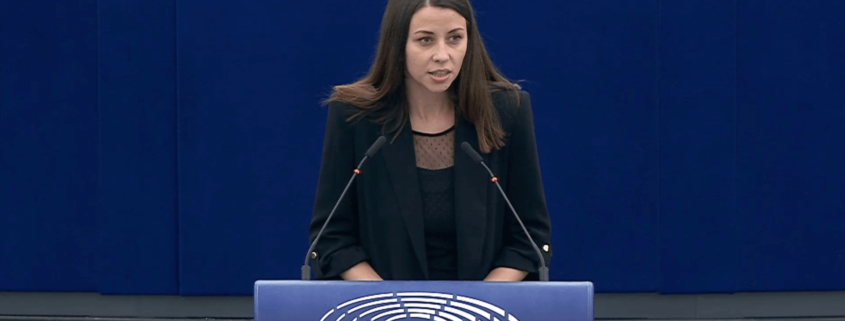On Tuesday, 14 February 2023, MEP Irena Joveva spoke at the Strasbourg plenary session on the need for an independent EU ethics body. “I think it is now clear to everyone that there is no other way”, she said, stressing that without integrity, transparency, accountability and zero tolerance of corruption, there will be no trust in the work of MEPs.
She said that, while certain rules already exist, the different codes of conduct that the European institutions have put in place make standards uneven, investigative powers insufficient, and sanctions deficient and often unconvincing.
”It is true that in the end, it all depends on the integrity of every individual, but it is nevertheless right that we establish a European ethics body, with unified, clear rules of conduct within all institutions. And I hope these will be the strictest rules possible.”
She went on to point out that a majority in the European Parliament had called for the creation of the body two years ago, but unfortunately to no avail. At the same time, she expressed her hope that, especially given all the recent corruption scandals, the European Commission will finally follow through on its commitment made on that occasion and act on the European Parliament’s renewed request.
”I think it’s now clear to everyone that there is no other way. It certainly is to those of us who have no problem with rules and ethics.”
Background
On 15 December 2022, the European Parliament adopted a resolution on suspected corruption by Qatar and the wider need for transparency and accountability in the European institutions. On 16 September 2021, MEPs had already called on the Commission to come forward with a proposal to improve transparency and integrity in decision-making at the EU level. In today’s debate with the Council of the EU and the European Commission, MEPs reiterated their call for the establishment of an independent EU ethics body.
Its purpose would be to ensure that public decisions are taken for the common good and help regain citizens’ trust in the EU institutions. It would be set up by an interinstitutional agreement between the Parliament and the Commission and would be open to all EU institutions, agencies and bodies with powers of investigation or advice, depending on the matter under discussion. Before her election, European Commission President Ursula von der Leyen promised to set up such a body and entrusted the task to Commission Vice-President Vera Jourova.




Leave a Reply
Want to join the discussion?Feel free to contribute!